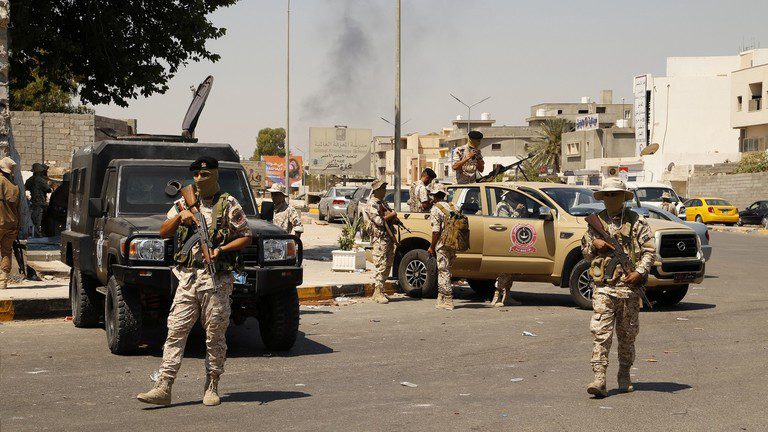Africa
Italian FM: Assassinating Gaddafi was a serious mistake

During a NATO military operation, US-backed militants killed the Libyan leader of state.
The top diplomat of Italy said that the removal of Muammar Gaddafi as the leader of Libya in a coup in 2011 was a grave mistake and that his murder had set off years of instability and conflict in the African nation.
Italian Foreign Minister and Deputy Prime Minister Antonio Tajani discussed Libya’s problems after Gaddafi was removed and killed on the sidelines of an event in Tuscany on Wednesday, saying he was “certainly better than those who arrived later.”
“Allowing Gaddafi’s murder to take place was a very grave error. “Political instability appeared in Libya and Africa once he was finished, though he may not have been the champion of democracy,” he remarked. Rome had maintained a commitment to the leader, according to the official, which “blocked the migratory flows and the situation was much more stable.”
During the 2011 civil conflict in Libya, Gaddafi was brutally murdered by rebel fighters while NATO bombed the area in an effort to impose a no-fly zone. The UK House of Commons later found that the “threat to civilians was overstated” and that Western powers had overlooked a “significant Islamist element” among the anti-Gaddafi militants, despite the fact that Washington and its allies had characterised the mission as a “humanitarian” effort to stop government attacks on civilians.
Following the regime change operation, Libya was divided between numerous rival governments, each of which asserted its right to rule. The conflict between the factions has persisted over the years, finally dividing into two camps, one led by the Government of National Accord, which is supported by the UN, and the other by forces loyal to General Khalifa Haftar and the Libyan House of Representatives.
Following Gaddafi’s demise, terrorism also had a rebirth throughout North Africa, with the Islamic State (IS, formerly ISIS) and organisations connected to Al-Qaeda establishing strongholds in Libya and elsewhere. According to the US Institute of Peace, there were an estimated 1,600 militant factions operating in the nation as of July 2014, a significant rise from the 300 recorded in 2011.
Although the two conflicting governments have been impassed for years, violence still erupts occasionally in Libya, with 27 people killed and over 100 injured earlier this week in fighting between opposing armed factions. The UN expressed alarm about the “security incidents and developments” in Libya, echoing earlier declarations, and Washington asked for “de-escalation” to “sustain recent Libyan gains towards stability.”
